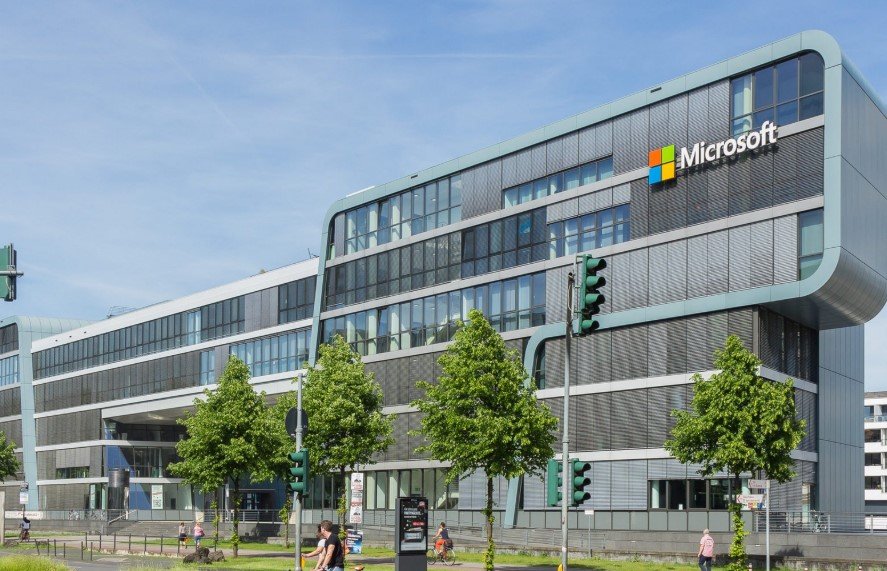Fourth round of job cuts in 18 months raises questions about post-Activision Blizzard strategy
Microsoft is swinging the axe again. And this time, it’s falling hard—right on the Xbox division.
Another wave of layoffs is set to hit the gaming group next week, people familiar with the matter say. The cuts come as Microsoft wraps up its financial year, and while the official numbers haven’t dropped yet, insiders say the headcount reduction could be “significant.” Again.
This would mark the fourth large round of job losses within Xbox since early 2024. It’s becoming a pattern that has employees anxious and analysts scratching their heads about what Microsoft actually wants from its $69 billion Activision Blizzard bet.
Trouble brewing behind the scenes at Team Xbox
The vibe inside Xbox has shifted. After Microsoft sealed the deal to acquire Activision Blizzard in late 2023, the expectation was sky-high: domination in the gaming space, a stronger content pipeline, more platform synergy, and maybe—just maybe—less reliance on console hardware.
But things haven’t gone as planned.
The layoffs come on the heels of three other rounds:
-
January 2024: ~1,900 layoffs at Xbox and Activision Blizzard
-
May 2024: Closure of four studios including Tango Gameworks and Arkane Austin
-
September 2024: 650 more jobs slashed from Xbox
-
June 2025: Another 300+ employees let go across Microsoft divisions
That’s a lot of bloodshed for a business that was once a rising star.

Cost-cutting in the age of AI obsession
Why is this happening? Follow the money.
Microsoft is trimming everywhere it can, while doubling down on artificial intelligence. CEO Satya Nadella has made no secret of the fact that the future of the company is wrapped tightly around AI and cloud infrastructure. That means more resources getting funneled into Azure, AI research, and massive data centers.
Gaming? Well, it’s starting to look like a side gig.
Last month, Microsoft let go of around 6,000 people. Most of them were from sales, marketing, and operations. But gaming’s not immune—especially now, when margins matter more than momentum.
Microsoft’s fiscal year ends on June 30. This is prime time for internal reorganizations. What’s different this year is the scale.
Fallout from a $69 billion gamble
When Microsoft bought Activision Blizzard, the company made one of the biggest bets in gaming history. Now, nearly two years later, that move is under fresh scrutiny.
Critics say Microsoft bit off more than it could chew. Others argue that gaming simply doesn’t fit into the company’s long-term vision anymore.
Here’s what’s changed since the deal:
| Timeline | Event | Impact |
|---|---|---|
| Jan 2024 | 1,900 layoffs post-merger | Major morale dip at Xbox and Activision |
| May 2024 | Shutdown of Tango, Arkane, other studios | Backlash from fans and developers |
| Sept 2024 | 650 more cuts in Xbox | Internal confusion about roadmap |
| Jun 2025 | Layoffs across HoloLens & Azure too | Signals broader strategic pivot |
Many of the studios Microsoft picked up in the deal are now either gone or directionless. Tango Gameworks—the team behind the well-received Hi-Fi Rush—was shuttered despite critical success. Arkane Austin, the studio behind Redfall, also got axed. Fans were stunned. Employees blindsided.
“Survivor syndrome” and internal unrest
One Xbox employee, speaking on condition of anonymity, said morale inside the division is “the lowest it’s ever been.” Another called the workplace mood “funeral-like.”
Layoffs create what HR pros sometimes call “survivor syndrome.” The people left behind aren’t necessarily relieved—they’re anxious. They wonder if they’re next. They wonder if any of the work they’re doing still matters.
And right now? There are more questions than answers:
-
Is Microsoft even serious about game publishing anymore?
-
What happens to Game Pass if content pipelines are drying up?
-
Does Xbox hardware have a future?
The silence from leadership has only made things worse.
Microsoft’s official line: strategic rebalancing
Microsoft isn’t calling it a retreat. The company describes these cuts as “tough but necessary” and part of a longer-term rebalancing effort. The idea is to focus on high-impact projects while trimming fat from areas deemed inefficient.
But let’s be honest—what does “high-impact” even mean anymore?
For years, Xbox was framed as a key pillar in Microsoft’s consumer strategy. But as AI steals the spotlight, gaming’s no longer the darling it once was.
Microsoft insists that it remains committed to Xbox and its gaming ambitions. But closing down studios, cutting back talent, and thinning out leadership says otherwise. Fans and employees are watching closely, and the company’s next steps will speak louder than any press release.
Investors like efficiency, but fans want content
From a Wall Street lens, this all makes sense. Microsoft stock hit new highs this year, buoyed by AI optimism and cost controls. Every headcount reduction sends a signal: we’re being smart, we’re being lean.
But the gaming business is emotional. You’re not just shipping code; you’re building communities. Killing off beloved studios or delaying flagship titles may not move the needle on a quarterly earnings call, but it can shatter fan loyalty.
And loyalty, unlike stock price, doesn’t recover overnight.







